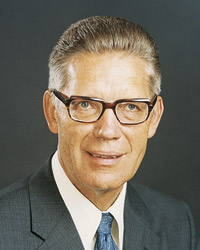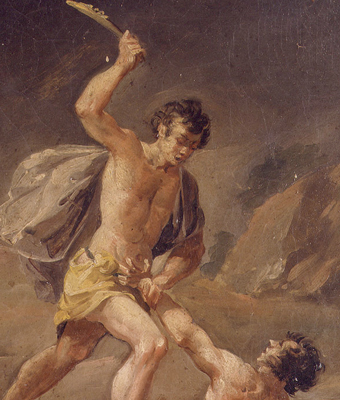Gramps,
In Alma 34:11, we read “Now there is not any man that can sacrifice his own blood which will atone for the sins of another. Now, if a man murdereth, behold will our law, which is just, take the life of his brother? I say unto you, Nay.”
Is this only in reference to Nephite law, and not Eternal Law? If not, why would the Eternal Law of Justice allow for Christ (a sinless man)to pay our debt of sin? Is this because the overpowering ability of mercy only exists beyond the veil and that is why Christ’ sacrifice is accepted by justice unto those who repent? Thanks.
rren
_________________
rren,
As I contemplate Alma 34:11, I believe it would be beneficial to understand the connection of verses 10 & 12 with this verse. Verse 11, explains a natural or temporal law that most nations would be familiar with. If a person murders, then it is only fair that that person pays for his choice. It would not be merciful or fair for anybody else to pay for his choice.
In Verse 10, we are told that the great and last sacrifice must “not be a human sacrifice; but it must be an infinite and eternal sacrifice.” In light of this verse we recognize that a “God” who is infinite and eternal is able to make intercession for the human family.
Elder Bruce R. McConkie provided this statement, “Man cannot resurrect himself;  man cannot save himself; human power cannot save another; human power cannot atone for the sins of another. The work of redemption must be infinite and eternal; it must be done by an infinite being; God himself must atone for the sins of the world” (A New Witness for the Articles of Faith [1985], 111–12).
man cannot save himself; human power cannot save another; human power cannot atone for the sins of another. The work of redemption must be infinite and eternal; it must be done by an infinite being; God himself must atone for the sins of the world” (A New Witness for the Articles of Faith [1985], 111–12).
Although verse 11 establishes the point that a human is unable to atone for the sins of the world. Verses 10, 12 – 16, establish the significance of the atonement as an eternal and infinite sacrifice. In relation to these verses, and Elder McConkie’s words, we further recognize that one God died and atoned on our behalf — emphasis on a God who provided the atonement, not a man. We all sin and have fallen short of the glory, how then might we who are found with fault (sin) save any other person who is also found with fault? We can’t. We have been unable to prevent our own lost and fallen state; we can’t save ourselves.
In light of this, an eternal law provides means whereby we may come back into the presence of God and receive of his fullness. The work of the atonement exists while the veil is in place and also while we are in God’s presence — remember the atonement is infinite and eternal; thus, it was applied in our pre-mortal life, it is applied in our mortal life, and it will be applied as an exalted being until we are perfected. This road to perfection will continue after this life until we have reached a perfected state similar to God and his son, Jesus Christ.
Gramps






